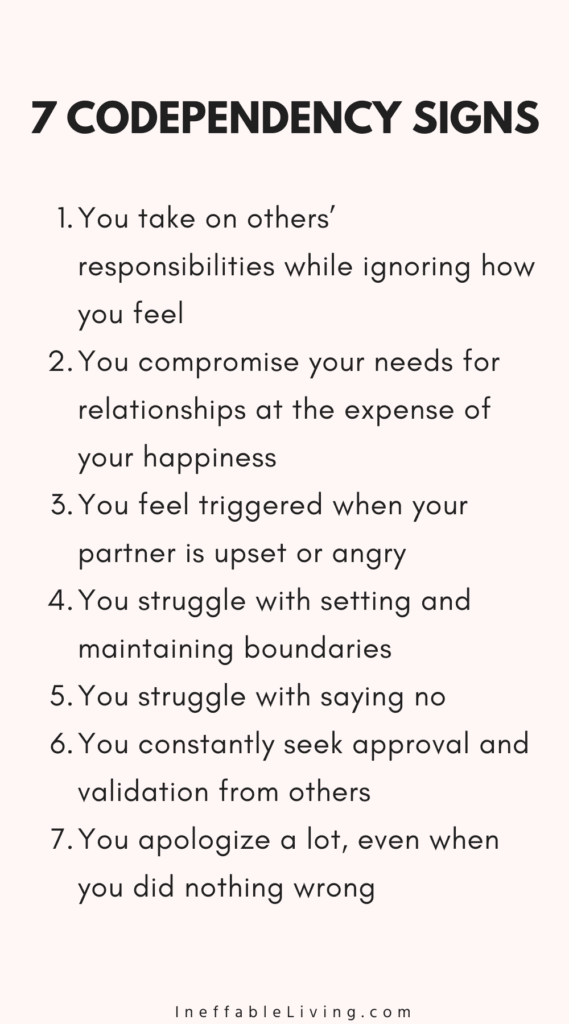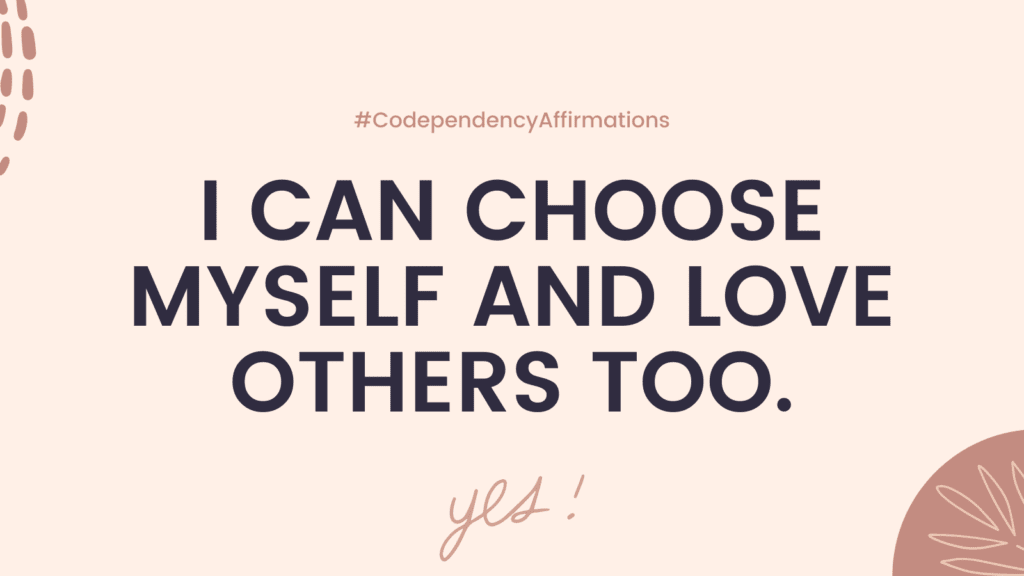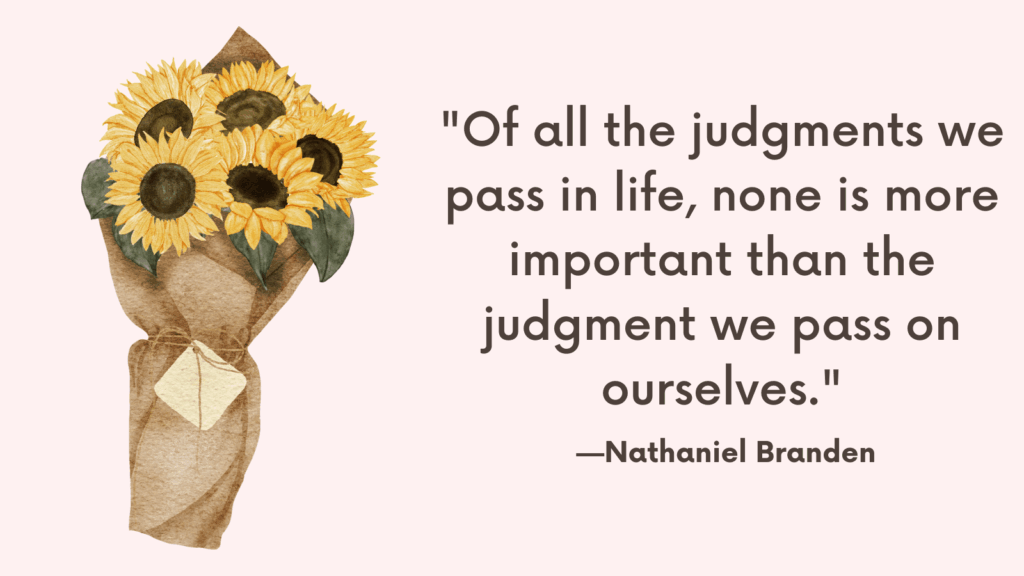Today, you’re going to learn all about what causes codependency.
What Is Codependency?
The definition of codependency has been debated for decades.
However, experts agree that codependency patterns include symptoms of depression, anxiety, and relationship issues.
These problems can further create issues, such as low self-esteem, shame, perfectionism, people-pleasing, etc.
Codependents often believe that their suffering and pain is caused by something outside of themselves, like their partner, family member, or a job.
However, oftentimes, it’s their codependent patterns, including their distorted beliefs, that are causing and adding to their problems.
Authors and researchers in the field of codependency expanded the term beyond living with someone with chemical addiction:
John Friel and Linda D. Friel: “Codependency is . . . a dysfunctional pattern of living originating both in one’s family of origin and culture that leads to arrested identity development.”
Melody Beattie: “A codependent . . . lets another person’s behavior affect him or her, and is obsessed with controlling that person’s behavior.”
John Bradshaw: “Codependency is . . . a symptom of abandonment — a loss of one’s inner reality and an addiction to outer reality.”
The Spectrum of Codependency
It may be difficult to tell if you’re codependent or not because unless you’re already in recovery, denial is one of the symptoms of codependency.
But whether you identify as a codependent or not, you can still benefit from addressing any codependent symptoms you recognize.
Like most things, codependency exists on a spectrum from mild to severe. It may flare under stress or when you’re in a relationship with toxic people.
In general, the severity of codependency depends on a number of factors:
- Your genetics
- Your culture
- Your family’s dynamics
- Your experience of trauma
- Your role models
- Intimate relationships you may have or had with addicts
Related: How To Break Codependency Habits For Good? Top 13 Codependent Habits to Quit Today
Codependent patterns
Codependents may experience any one of a combination of the following patterns:
1. People Pleasers
People pleasers have a hard time saying no and have unhealthy personal boundaries with others.
They’re rather agree and comply with others than express their needs or face conflict.
People pleasing can also be a form of manipulation and control to get the same treatment reciprocated.

2. Perfectionists
Perfectionists are driven by fear of failure or making any mistakes.
They are preoccupied with perfection.
3. Overachievers
Overachievers feel a sense of emptiness that they try to fill with achievements.
However, since the emptiness is not caused by lack of achievement, it’s never relieved for long with each achievement.
4. Failures or Inadequate Ones
Failures have low self-esteem and struggle with feelings of shame. They feel inadequate, not good enough, and flawed at their core.
5. Rescuers
Rescuers try to fix or help others while neglecting themselves and losing their identity in relationships.
Rescuing is a survival technique learned growing up in dysfunctional family of origin.
6. Victims
The victim can be the one with chronic illness or the one who is always getting into trouble.
The victim expresses self-pity and claims that no one understands them.
Although they ask for help and advice, they rarely commit or follow through.
7. Martyrs
Martyrs are more difficult to help than victims because they deny what the victim admits, such as feeling misunderstood and hopeless.
Instead, martyrs manifest these feelings by their actions. They often refuse help claim they have tried everything and it didn’t work.
Martyrs often disguise themselves as rescuers or fixers and suggest that they’re have “too much” responsibility, yet they won’t take responsibility for their own lives.
What Causes Codependency?
The short answer is: Dysfunctional parenting in childhood
Critical, neglecting, rigid, invasive, inconsistent, rejecting, emotionally unavailable, or abusive parents can cause children to develop negative core beliefs about themselves.
Codependency is mainly a problem of negative beliefs about one’s self and others.
1. Not Being Loved For Who You Are
Children are born vulnerable and dependent on their caretaker for everything.
Parents communicate their love or lack thereof through their actions, words, tone of voice, facial expression, etc.
Because they look up to and rely upon their parents for survival, children who didn’t receive love, will often direct their anger toward themselves and feel deep shame about their person.
Codependents internalized the message that their inadequate and defective, and need to comply and measure up to an imagined ideal to be accepted.
Many codependents become perfectionists to balance their self-hatred, prove their worth, and/or become independent and never need anyone again.
Related: How To Start A Self Love Journey? Top 10 Powerful Ways to Love Yourself More
2. Not Having Your Feelings Mirrored Back
The primary caretaker’s ability to mirror the child’s feelings helps the formation of a healthy, separate sense of Self.
This is done when the primary caretaker empathically matches their response to their child’s needs and feelings.
They join their child’s joy and sympathize with their sadness.
They name their child’s feelings, teaching their child to recognize and respond to their feelings.
This is how the child feels secure and safe expressing their real self.
However, deficient or inadequate mirroring as a result of unavailability and lack of empathy, can cause the child to feel abandoned and invalidated.
They learn that their feelings and needs are unimportant, wrong, and even shameful.
Related: How To Validate Someone’s Feelings Without Agreeing? (+Examples of Validating Statements)
3. Boundary Problems
Healthy parenting requires appropriate and flexible boundaries that respect the child’s feelings and personal space.
In dysfunctional families, boundaries are usually blurred, rigid, or both.
When boundaries are rigid, family members are unavailable and disengaged. Siblings grow up emotionally distant.
When boundaries are blurred or nonexistent, the child internalizes the message that they have no right to set boundaries or be separate from the rest of the family.
4. Dysfunctional Communication
In dysfunctional families, people don’t listen, and don’t communicate assertively or openly.
Dysfunction communication may include one or more of the following traits:
- Abuse
- Dishonesty
- Gaslighting
- Aggressiveness
- Invalidation
- Blame
- Criticism
- Scapegoating
- Walls of silence
This may cause the children to become afraid to express their thoughts and feelings because they’re used to being ignored, or shamed.
5. Inconsistency and Unpredictability
Inconsistent parenting can lead to confusion, feelings of helplessness, and unexpressed anger.
The child lives in constant fear, walking on eggshells, never knowing what mood their caretaker will be in.
They eventually lose respect and trust in their caretaker.
Related: EFT For Codependency: Simple 5 EFT Steps That Will Help You Break Free From Codependency
6. Chemical Addiction
Codependency was first observed in alcoholic families.
Although you don’t have to be raised by an alcoholic to be codependent, families with chemical addiction often have all the above dysfunctional characteristics.
Get FREE Overcome Codependency Worksheets

Conclusion
Growing up in a dysfunctional family can be traumatic and cause codependency.
Children who are neglected, shamed, and abused eventually conclude that they need to put aside their authentic self and play an adult role before they’re ready.
What’s Next? How to Heal Codependency and Savior Complex? Top 12 Strategies to Overcome Codependency For Good
References
- Portions of this article were adapted from the book Codependency For Dummies, © 2012 by Darlene Lancer. All rights reserved.
- The Lived Experience of Codependency: an Interpretative Phenomenological Analysis | SpringerLink
- Codependency: An Empirical Study from a Systemic Perspective | SpringerLink
- Living with Addicted Men and Codependency: The Moderating Effect of Personality Traits – PMC (nih.gov)
- Measuring codependents’ close relationships: a preliminary study – PubMed (nih.gov)
- Co-Dependency | Mental Health America (mhanational.org)
- Codependency: What Are The Signs & How To Overcome It (positivepsychology.com)
- Codependent relationships: Symptoms, warning signs, and behavior (medicalnewstoday.com)
- Codependency of the Members of a Family of an Alcohol Addict – ScienceDirect



